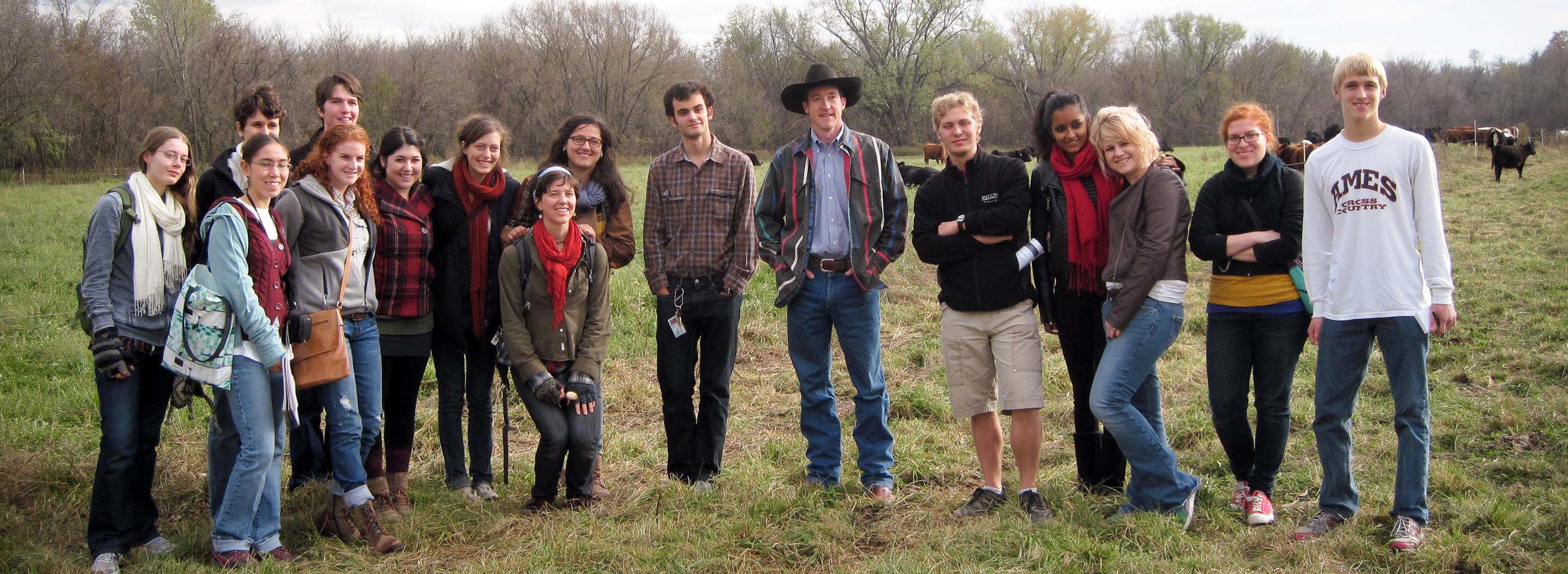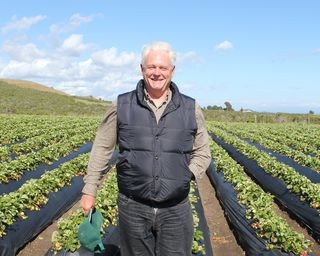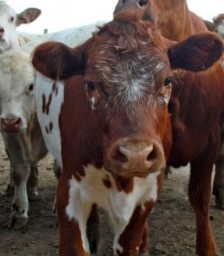In this video , UK Professor Michael Crawford discusses the impact of factory farming and modern meat production, which he says should more rightly be called “fat production.”

The Bon Appétit Blog
+ Blog Categories
Hydrate the Healthy Way With Fresh Flavored Water
- Blog
By Kristen Rasmussen, MS, RD, dietitian consultant, and Terri Brownlee, MPH, RD, LDN, Bon Appétit Regional Director of Nutrition Every month, Bon Appétit Management Company’s Food for Your Well Being program offers information about a particular dietary change that our customers could make to improve their health. July’s Hydrate the Healthy Way campaign focuses on avoiding beverages with added sugar or other sweeteners. (Read more about it on our Facebook page.) We hope you’ll try out one of the recipes we’ll be posting this month for delicious drinks that will quench your thirst without expanding your waistline. Mint, Citrus, and Fruit-Spiked Water Still or sparkling water Fresh mint leaves, crushedSliced oranges, lemons, or other citrus fruitSliced strawberries, blueberries, or raspberries Ice (optional) Stir fruit and/or herbs of choice into still or sparkling water to taste and add ice if desired. Let […]
First Harvest from Gallaudet Community Garden
- Blog
Left to right: Gallaudet gardeners Carolina Fojo, Marcy Knox, Nicholas Palazzo III, Ryne Worsham, Davina Kwong, Jon Terpak Eight months ago the Gallaudet Community Garden was nothing but an abandoned volleyball court filled with sand. Today, thanks to the efforts of students and Bon Appétit — with the help of the football team — it’s a thriving garden of fourteen 20-foot-long beds that just saw its first-ever harvest! “It was an exciting day for everybody,” reports Davina Kwong, Bon Appétit General Manager at Gallaudet University, who helped spearhead the garden’s creation. “Employees from the café came out to help with the harvest, pick the fresh vegetables, and dream up ways to show them off in the café the next day.” Right: Bon Appétit café employee Tanisha Bryant picks beets from the garden. Golden wax garden beans, cucumbers, and beautiful yellow, […]

Celebrating Summer – and Sustainable Food – with CUESA and a Bon Appétit chef
- Blog
On Sunday, July 10, join the Center for Urban Education about Sustainable Agriculture (CUESA) and dozens of Bay Area chefs and food luminaries, including Bon Appétit’s Oracle – Redwood Shores Executive Chef, Robbie Lewis, for cooking demonstrations and seasonal tastes at the first Summer Celebration. The event will be held in the beautiful, historic San Francisco Ferry Building from 6 p.m. to 9 p.m., with more than 60 local chefs, businesses, and sustainable farmers providing tasty treats and drinks for guests to enjoy to raise money for CUESA. Bay Area locals might only know CUESA as the hosts of the San Francisco Ferry Building Farmer’s Market. In truth, CUESA provides much more as part of its educational mission, including free cooking demonstrations, low-cost kitchen skill-building classes, the new Schoolyard to Market program, and scholarships that help sustainable farmers become leaders in their […]

Hydrate the Healthy Way with Any Melon Agua Fresca
- Blog
By Kristen Rasmussen, MS, RD, dietitian consultant, and Terri Brownlee, MPH, RD, LDN, Bon Appétit Regional Director of Nutrition Every month, Bon Appétit Management Company’s Food for Your Well Being program offers information about a particular dietary change that our customers could make to improve their health. July’s Hydrate the Healthy Way campaign focuses on avoiding beverages with added sugar or other sweeteners. (Read more about it on our Facebook page.) We hope you’ll try out one of the recipes we’ll be posting this month for delicious drinks that will quench your thirst without expanding your waistline.
Why Bon Appétit Chefs Believe in Going Nose to Tail
- Blog
Executive Chef David Anderson demonstrates how to separate the ham and loin in his hog butchery demo Bon Appétit Executive Chef David Anderson from the Stanford Graduate School of Business believes that an animal’s life is worth more than two pork tenderloins. After the recent Northern California Chefs’ Exchange focusing on butchery at Cisco – San Jose, in San Jose, CA, he had this to say about how we use animals in our cooking:

Hydrate the Healthy Way with a Peach Lassi Freeze
- Blog
July’s Hydrate the Healthy Way campaign focuses on avoiding beverages with added sugar or other sweeteners. Here’s a seasonal, lighter take on an Indian classic that will quench your thirst without expanding your waistline.

Advice for Young Farmers from Swanton Berry Owners
- Blog
Five tips for aspiring farmers on creating socially just farms, from Jim Cochran and Sandy Brown of California’s Swanton Berry farm, the “poster farm” of the fair-food movement.
“Safe” Food Isn’t Our Real Problem, Says CEO Fedele Bauccio
- Blog
Peter Coclanis argued in the Wall Street Journal that “American food is much safer than you think.” He is right in that that system only (italics mine) kills eight people a day on average, and that they are the weak members of our herd: babies, the elderly, the sick. He seems to think some human suffering is an acceptable price of doing business. Too bad it’s one that the food industry doesn’t actually pay.

From Frigid Fjord to Fork: Adventures in Alaskan Seafood
- Blog
Helene York, Bon Appétit’s director of strategic initiatives, recently visited Alaska, where she was speaking at Global Food Alaska’s biennial summit of producers from all parts of the food supply chain. Being Helene, she turned the trip into a jam-packed opportunity to learn all she could about the Alaskan seafood industry.
